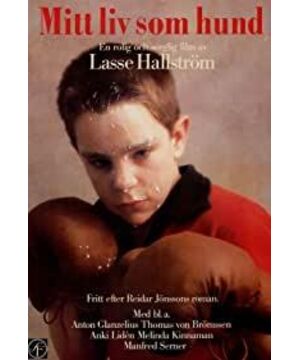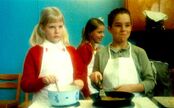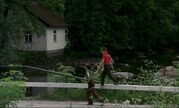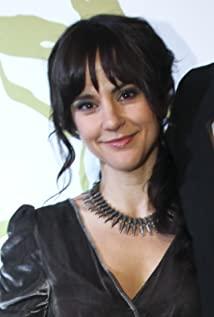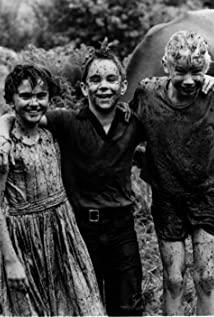The eyes of the dark night, the melancholy starry sky When giving close-up shots, I am often attracted by the protagonist Yingma's eyes: deep with innocent and cunning flashes. The film's narrative from Yingma's perspective runs through the story, recording many big changes and twists and turns in the eyes of a sensitive and vulnerable Nordic boy. Yingma looked through the skylight of the summer hut, and said to the starry sky, "I think it's not that bad, it will be worse" and so on, convincing herself that there are so many questions about this world, confused and confused, and continued on. Such confusion and confusion. The setting of dark night and starry sky is romantic and dreamy, which is an excellent intention of childhood and a lonely barrier of open nature, while the summer house is more like a man-made shelter. In these two scenes, Yingma looks for spiritual sustenance. In the space of one big and one small, the boy's self-talk will not have the deliberate sense of giving new words and expressing sorrow. The "bad" mother who "loves and kills each other" has always lingered in Yingma's heart for her mother's guilt: it was he who killed her. Ingma and her brother's inconsideration towards their mother when they are at home undoubtedly pushes her shaky mother to a cliff. At the same time, he was also full of regrets for his mother, and hoped that he could share some of his own experiences with his mother. Behind the guilt and regret is the little boy's unspoken deep attachment to his mother. In the flashbacks of Inmar's memory scene with her mother on the beach, her mother is always full of humor, watching Inmar's behavior and laughing. The relationship between the sick mother and Inmar changes from normal to abnormal. Her frail body and moody emotions put Inmar's psychological needs thousands of miles away. There is no doubt about the emotional bond between mother and son, but the lack of smooth communication between the image of a single mother who gave up her career and was besieged by a trivial family and a troublesome but emotional little boy actually increased the contradiction and torture, anxiety and helplessness. There are several scenes in the movie where Inmar sits on her mother's bed and chats with her mother, all of which are interrupted by her mother's violent cough or her mother's request to let Inmar read to her. This is not a bad mother after all, but an ordinary person who is struggling needlessly in the whirlpool of fate. little boy learning to bark When she saw her uncle learn how to bark while chasing her aunt in the room, Yingma also learned how to bark with her uncle. In the film, Yingma has all kinds of explicit or implicit perceptions of "sex". His spontaneous behavior is a primitive instinct about sex directly infected by the pleasant relationship between his aunt and uncle, chasing the pleasure of sex like a dog until he is locked out. The loss of Yingma, who was abruptly isolated in the adult world, is the collision of the boundaries between children and adults. On certain occasions, they were told not to enter. Another time, Yingma, who learned to bark, turned into a wounded little beast. Broken down with a double whammy: he's like a bereaved dog completely abandoned by his mother. And the fate of the pet puppy, who had been deceived by herself, was also exposed by the girl who was enraged by jealousy. The unbearable weight of life under the fate of being unable to resist, and the girl's revenge-style boxing, the little boy who learns to bark is not so much to use his boxing ability to vent his anger, but to face this outside the child's vision. The insanity of a strange world. The Unsteady Cup and Uncontrolled Life There are three scenes in the movie where Imma holds the cup unsteady. The first time was at my own house, I would look at my mother's wink, but the milk was still splashed all over my face. The second time was his first visit to his uncle's house. He looked at his trembling right hand and put down the cup abruptly. The third time was to attend a party at the school's female classmate's house. He was nervous and cautious. When he saw the shaking of the cup, he went upstairs on the runway. He drank the water in the cup in one gulp and was safe. This time, it can even be said to be calm and calm. The unsteady cup doesn't seem to suggest some kind of illness in Inmar, but rather a metaphor for the little boy's self-control. He is able to gradually suppress some natural instincts and follow the inherent rules and handling methods in the immersion of personal and social interactions. He will gradually cease to be the naughty child that adults hate, and gradually fade away his childhood years. However, people can control the unstable cup, but they will not be able to control the unstable fate. Under this proposition, the village and town where the uncle is created in the film brings solace to Yinma. Simple and warm interpersonal relationships, quiet and ordinary life are like the sound of nails on the roof at the end of the film, day after day.
View more about My Life as a Dog reviews


